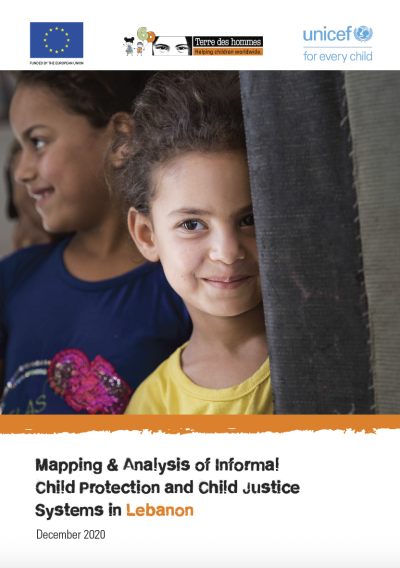Mapping & Analysis of Informal Child Protection and Child Justice Systems in Lebanon
- Log in to post comments
The study identified six major informal child protection and justice pathways. In the Lebanese context, formal actors — who have immediate authority to open a case if they deem it suitable — have a considerable amount of leverage to influence the outcome when it comes to an informal process. “Power of discretion” is one pathway that consists of formal justice actors — police, judges, prosecutors, or even prison wardens — trying to avoid opening a file in a particular case, because they believe that the level of harm or damage caused does not require engaging the formal pathway. The second informal pathway, “co-opting formal actors to avoid the formal pathway,” includes the indirect use or involvement of formal actors in order to exercise pressure or intimidate children. Since children and adolescents tend to be afraid of the formal system, co-opting formal actors to pressure them into complying appears to be a form of resolving issues amicably, without opening a formal file. Moreover, formal actors may choose the “formal, yet non-judicial pathway.” This is the informal justice pathway that is most closely aligned with the core functions of formal child protection and justice actors. In this context, formal actors, such as judges, have the discretion to choose flexible measures tailored to the specific case. Depending on their appraisal, certain NGOs or other informal actors may be considered as the most appropriate to resolve a justice issue or deal with a Child in Conflict with the Law (CiCL) or a child at risk.

